

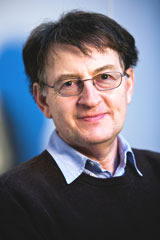 EE4389W: Introduction to Predictive Learning
EE4389W: Introduction to Predictive Learning
Instructor: Vladimir Cherkassky
Mondays & Wednesdays, 2:30PM - 3:45PM, 09/05/2017 - 12/13/2017
Akerman Hall 211
Advances in computer and database technology motivate the need for estimating dependencies (models) from available data. Often the main goal is to estimate a model providing generalization, i.e. good prediction for future data. Such methods have been developed in various fields including statistics, machine learning, neural networks, data mining, signal processing etc. This course presents description of predictive data-analytic modeling methods on several levels: conceptual/mathematical, technical and philosophical.
The course consists of three related parts: 1. Conceptual/Theoretical Part deals with fundamental concepts and principles important for estimating predictive data-analytic models. These issues are addressed by the mathematical theory called Statistical Learning Theory, which is introduced in this course. 2. Technical/Practical Part focuses on constructive learning methods and applications. Representative learning methods include methods developed in machine learning, statistics and neural networks. These methods include Decision Trees, MultiLayer Perceptrons, Self- Organizing Maps, Support Vector Machines and Boosting. These methods are illustrated via practical applications, such as object recognition, financial engineering, signal denoising, etc. 3. Philosophical Part explores the connection between mathematical principles presented in Part 1, and the Philosophy of Science, which is concerned with general conditions for judging the validity (truthfulness) of scientific theories. Similarly, the fundamental principles of inference from data (discussed in Part 1) underlying machine learning algorithms (in Part 2) will be also related to mechanisms of human learning and intelligence.
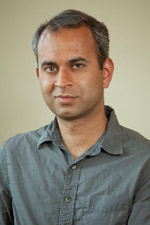 EPSY 8114: Seminar: Advanced Cognitive Psychology
EPSY 8114: Seminar: Advanced Cognitive Psychology
Instructor: Sashank Varma
Tuesdays, 2:30 - 5:15 PM,
Nicholson Hall 110
This course is a graduate introduction to cognitive psychology. It is 'advanced' in the sense that it focuses on higher-level cognition, and also in its emphasis on theories and models in addition to empirical results. The topics include the cognitive revolution, working memory, executive function and cognitive control, long-term memory, learning and transfer, concepts and categorization, expertise, problem solving, language comprehension, mathematical thinking, reasoning, decision-making, creative thinking, and cognitive architecture. Graduate students interested in cognitive psychology are invited to register for the course, regardless of disciplinary background.
For questions or more information, please contact Dr. Sashank Varma (sashank@umn.edu).
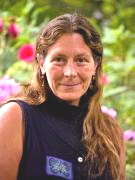 CSci 5619: Virtual Reality and 3D Interaction
CSci 5619: Virtual Reality and 3D Interaction
Instructor: Victoria Interrante
Tuesdys and Thursdays 11:15am - 12:30pm
Mechanical Engineering 108
Course overview: Through a combination of lectures, class discussion, hands-on demos, in-depth topic presentations, and diverse readings from a recently published textbook and from the current literature, students will be exposed to a wide range of interesting and exciting cross-disciplinary research in the broadly-defined fields of virtual and augmented reality, 3D user interaction and spatial user interfaces. Students will have the opportunity to conduct a semester-long project, either alone or with 1-2 others, working hands-on with leading edge virtual reality systems and hardware such as: the Unity and Unreal4 game engines; Mixamo, Blender, Maya, 3D Studio Max and/or other modeling/rigging/animation systems; and the Oculus Rift, HTC Vive, or Microsoft Hololens head-mounted displays; Emotiv EPOC consumer-grade EEG system; Leap Motion hand-tracking system; Vicon full-body motion capture system; Microsoft Kinect; Structure Sensor 3D scanning hardware; and/or SMI or Arrington eye tracking integrated into the HTC Vive or nVisor ST50 HMDs, if desired.
Course activities: Each week, students will be responsible for reading either selected sections in our textbook or from papers in the current and historical literature in the field of virtual reality, and submitting a brief (half page) written report, as well as participating in class discussion. In addition, each student will be individually responsible for choosing a topic, in consultation with the professor, on which they will perform an in-depth literature review. Each student will also be responsible for preparing a 20-minute presentation on their chosen lit review topic, or in a related area, that they will present to the rest of the class. Most importantly, each student will be responsible for implementing an independently-defined term project, making use of available virtual reality equipment as appropriate. Students are encouraged to work in teams of 2-3 on this project, in order to be able to achieve something more extraordinary than what would be possible to accomplish by working alone; however, group work is not required. Each student will receive an independent grade on the final project regardless of the team size. The term project is expected to be a semester-long effort, involving a minimum of 45-60 hours of work per team member.
Prerequisites: Students must be self-motivated, and willing to put in at least 4-6 hours/week of effort on project development, outside of class, on a regular basis. Familiarity with graphics programming is a plus but is not required. Students from outside of computer science will be encouraged to partner with CS majors to achieve a project that leverages their home-department expertise.
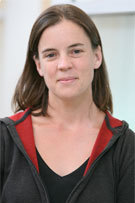 PSY 3996: Science Fair Mentoring
PSY 3996: Science Fair Mentoring
Instructor: Cheryl Olman
Tuesdays & Thursdays 3:00PM - 4:15PM
Elliott Hall N227
Do you want to help students from diverse backgrounds succeed in science, and get credit for doing it? Then sign up for 3 credits of PSY 3996 with Professor Cheryl Olman and spend from 3-4:15 on Tuesday and Thursday afternoons learning how to create a supportive learning environment centered around cool science demos and related art projects. We'll spend September preparing engaging demos and figuring out how to scaffold science skills for 7th and 8th graders. Those first few weeks of class will meet in Elliott Hall. Then we'll start meeting over at Murray Middle School (2200 Buford Ave, St Paul, MN 55108 ... a short walk from the St Paul Campus or the #3 bus stop at Buford and Como Ave), working with Murray students as the invent, execute and present a science fair project.
Email caolman@umn.edu to find out more or ask for a permission number.
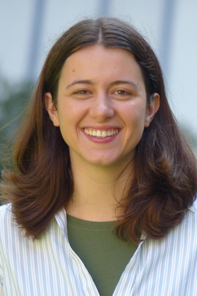 CSCI 8980: Social Connectedness Technologies
CSCI 8980: Social Connectedness Technologies
Instructor: Lana Yarosh
Tuesdays & Thursdays 4:00 - 5:15 PM, Tuesdays and Thursdays
Bruininks Hall 420A
Technology may hold the promise of increasing interpersonal connectedness, but previous work has found that many forms of social media may have unintended social isolation effects. In this course, you will learn to explicitly investigate social connectedness as an outcome of communication systems. We will discuss technologies as diverse as online communities, social mobile apps, video-mediated communication, augmented reality, and more. As a group, we will jointly create and submit for publication a systematic analysis outlining the opportunities and challenges in technologies for supporting social connectedness.
No technical background necessary. Email lana@umn.edu with any questions and to get a permission number to register
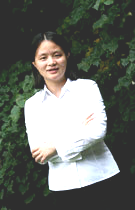 PSY 5960 SEC 001: The Psychology of Attention
PSY 5960 SEC 001: The Psychology of Attention
Instructor: Yuhong Jiang
Mondays 12:30-3pm
Elliott Hall N391
Is attention needed for perception? Are we more likely to attend to locations associated with reward? Does brain training work? And are attention deficits at the root of autism spectrum disorder? This seminar will introduce students to some of these ongoing debates in the psychology of attention. Students will acquire familiarity with theories, phenomena, and experimental paradigms of attention.